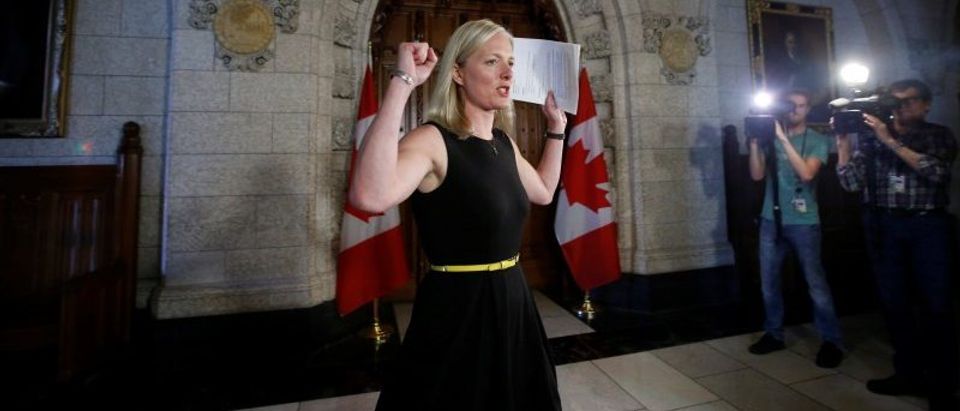Canadian Prime Minister Justin Trudeau unveiled his carbon tax scheme Thursday afternoon; it’s a plan that will force all Canadian provincial governments to adopt their own carbon tax or have one imposed by the federal government.
Only one provincial leader says he won’t submit to Trudeau’s dictate: Saskatchewan Premier Brad Wall.
Wall has already suggested that he is prepared to take the federal government to court in order to not comply with the carbon tax demand.
Trudeau’s environment minister, Catherine McKenna, says the Liberal government’s carbon tax will be a combination of a simple excise tax on gas sales and a complicated cap-and-trade system for large industries. The levy will be introduced at $10 per ton of carbon dioxide in 2018 and will jumpy to $50 per ton by 2022.
With critics like Wall calling it a massive tax grab with the highly debatable objective of slowing climate change, there is widespread uncertainty over just what happens to the money raised by the tax and who will control the fund — the provinces or the federal government.
McKenna told reporters on Parliament Hill yesterday that provinces that already have a carbon tax or are considering one affect 97 percent of Canadians. So the federal carbon tax could potentially only be applied to the prairie province of Saskatchewan, a resource-rich but thinly populated jurisdiction.
Carbon tax supporters like to call the levy “revenue neutral” and Trudeau has insisted that all taxes collected will go back to the province of origin and McKenna reiterated that point on Thursday; however, she would not clarify whether that meant the revenue will be returned to provincial governments or used by the federal government for its own purposes.
“Not a single dollar goes to Ottawa,” McKenna said Thursday. “We’re evaluating how best to return the revenue — for example, by giving it directly back to individuals and businesses in the province.”
That lack of clarity prompted the national director of the Canadian Taxpayers Federation to say, “I think the federal government’s being disingenuous,” Aaron Wudrick told the National Post. Noted that the provinces “are essentially bystanders in this.”
Wall refrained from commenting on McKenna’s remarks. For her part, McKenna seemed confident that the federal government would be victorious in a legal action initiated by Saskatchewan.
“We certainly hope that Saskatchewan will develop a plan that makes sense for Saskatchewan,” she told reporters.
“But let me be absolutely clear that it is well within the federal government’s right to take action to protect the environment.”


